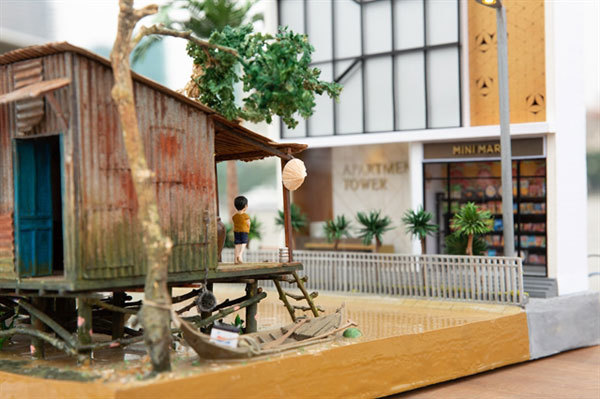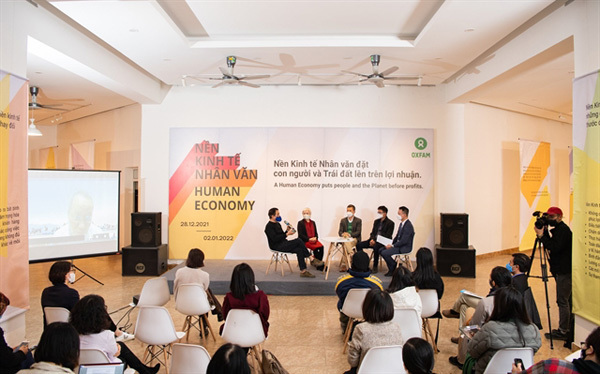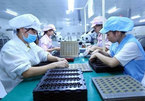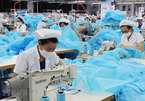 |
| A miniature model on inequality on display at the exhibition Human Economy. — Photo courtesy of Oxfam in Vietnam |
The observation was presented by Dr Nguyen Thang, Standing Vice-Chairman of the Socio-Economic Advisory Council (Vietnam Academy of Social Sciences) in a seminar on the human economy, on Tuesday.
Hosted by Oxfam in Vietnam, the seminar was a discussion between development experts, and art and social researchers on how people and the Earth should be placed before profit.
The human economy is a new economic model proposed by Oxfam, aiming to address the shortcomings in the current economy, which exacerbate social inequalities and environmental damage.
This inequality was evident in the flux of labourers leaving HCM City for their hometowns, following the major pandemic outbreak and lockdowns in the city during the summer months of 2021.
“They no longer had anything to hold on to. Marginalised by the social security system, they had to go back home,” said Le Quang Binh, director of the social enterprise ECUE at the event.
Pham Quang Tu, deputy director of Oxfam in Vietnam said: “It is time that we no longer measure a nation’s development with its GDP. Countries need to measure growth through a broader evaluation system that also includes welfare, multi-dimensional poverty, and the factors that could compromise environmental sustainability.”
 |
| Experts and art and social researchers at the seminar. — Photo courtesy of Oxfam in Vietnam |
According to Dr Nguyen Thang, building the human economy in Vietnam requires inclusive development alongside management on the increase of wealth inequality, which could be a potential risk to social cohesion and the country’s development in the next 10 to 15 years.
The seminar was also the opening event for a miniature exhibition of the same name, which portrays different aspects of social life in Vietnam.
In addition to positive changes, the exhibition also touches on the reality of social gaps in wealth and education, as well as the existing issues in urban areas: social and gender equality, public services and unpaid care work, among others.
“Contemporary art directly intervenes and creates dialogues with social issues,” said artist Tran Luong, the exhibition curator.
“Not only presenting critical opinions, contemporary art practice also suggests solutions and premises for progressive, sustainable and humane solutions. It is a laboratory for social progress in itself.”
The event will be followed by a series of social discussions on the human economy, aiming to shift the focus to people instead of the “for-profit economy” that is disrupting social cohesion in many countries.
Source: Vietnam News

Nearly 20 percent of Vietnamese men never do house chores: ILO Vietnam
According to a report of the International Labor Organization released today, 20 percent of Vietnamese men never do house chores while most women of the country must carry double burden of work and family responsibilities in the coronavirus pandemic.

Mindset change needed to achieve gender equality in labour market: ILO
A new research brief shows that the COVID-19 pandemic has not only exacerbated existing inequalities but also created new gender gaps, the International Labour Organisation (ILO) in Vietnam has said,